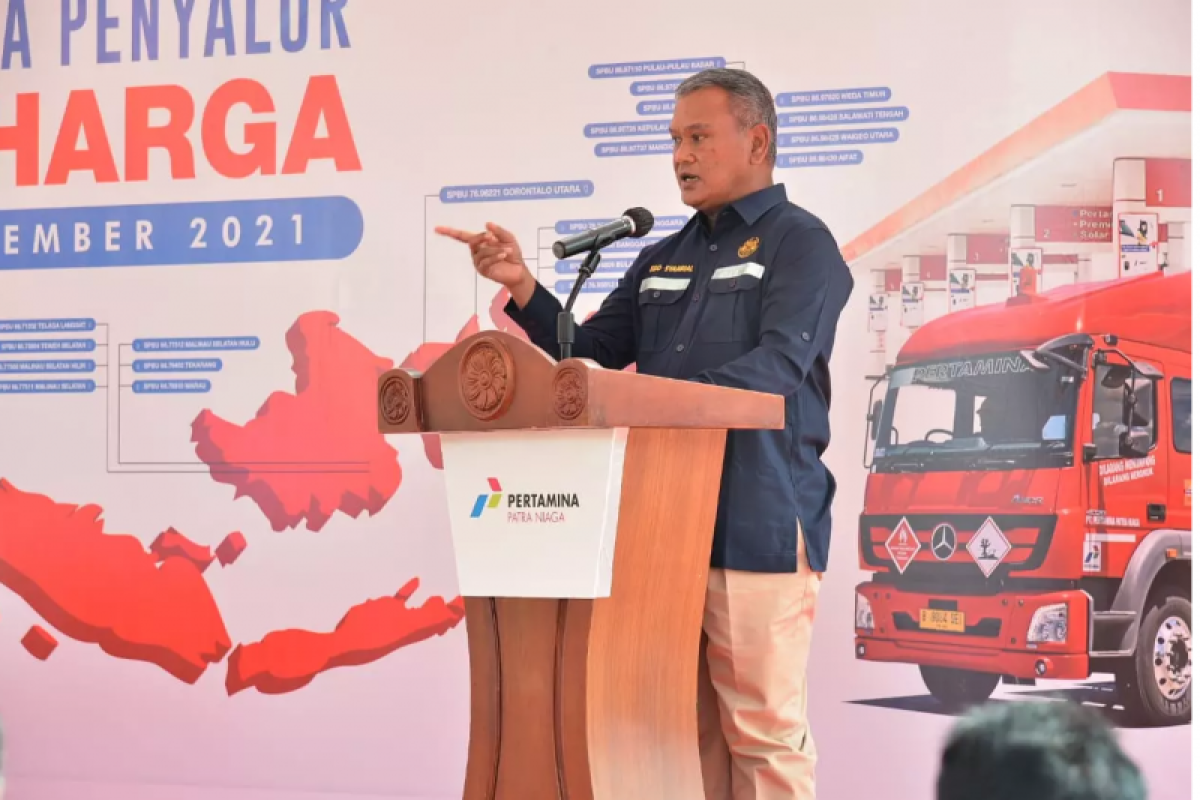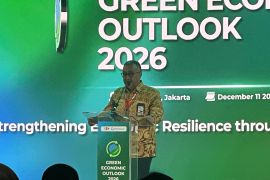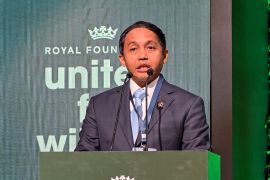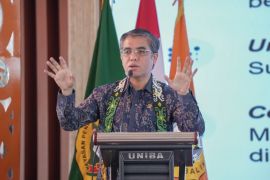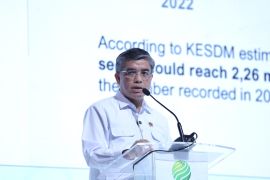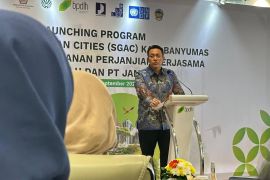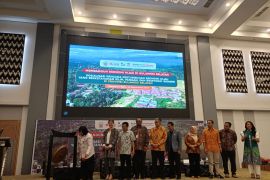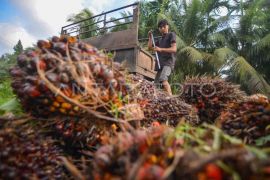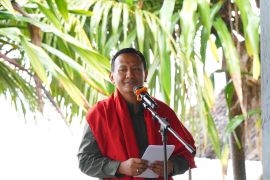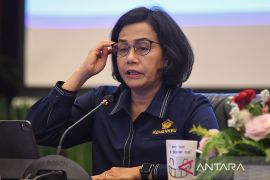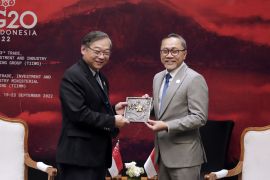We want to provide convenience in business licensing from related ministries. We also need fiscal and non-fiscal incentives for renewable energy developmentJakarta (ANTARA) - The Indonesian government is committed to tackling climate change by building a green economy program that aims to protect the environment by reducing the effects of greenhouse gases while maintaining the national economic growth rate.
Secretary-general of the Ministry of Energy and Mineral Resources Ego Syahrial said that the green economy program, through energy transition, will focus on the development of new and renewable energy that has minimal emissions and is environmentally friendly.
"The ministry has compiled a road map for the energy transition to carbon-neutral, which has been announced at COP-26 in Glasgow, the UK. We are trying to achieve carbon neutrality by 2060 or sooner," he informed at the 2022 Indonesia Green Economy Indonesia Summit on Wednesday.
In 2021, the realization of new and renewable energy in the national energy mix reached only 11.7 percent. Meanwhile, the net electricity mix is targeted to reach 23 percent in 2025, Syahrial noted.
In an effort to narrow this gap, the ministry will encourage the implementation of rooftop solar power plants (PLTS) of 3.6 gigawatts, with a potential mix increase of 0.8 percent.
The ministry will also pursue the construction of new renewable energy plants of 10.6 gigawatts (including the replacement of diesel power with renewable energy plants), with a potential increase of 11.7 percent.
Furthermore, it will push the utilization of biofuels to 11.6 million kiloliters, with a potential mix increase of 4 percent.
Another commodity potential that could increase the renewable energy mix by 6.5 percent includes the obligation to build new renewable energy plants outside state-run electricity company PLN's business areas, increase biofuel use, and expand the co-firing program for steam power plants owned by PLN and the private sector.
Syahrial said that in order to develop new and renewable energy, several regulations are needed, including the Presidential Regulation concerning the purchase of new and renewable energy, which will make the price of clean electricity more competitive and able to compete with fossil energy.
Related news: Indonesia bolstering green economy through waste management
"We want to provide convenience in business licensing from related ministries. We also need fiscal and non-fiscal incentives for renewable energy development," he added.
In the energy transition road map to carbon-neutral, the government has emphasized that additional electricity generation will only come from new renewable energy plants after 2030.
Starting from 2035 power plants will be dominated by different forms of renewable energy in the form of solar power, followed by wind power and ocean currents in the following year.
Related news: UK optimistic of Indonesia's national development plan being greener
Then, nuclear power will be included in the generation system starting in 2049. Hydrogen will also be used gradually, starting in 2031 and massively in 2051.
The government will ensure that the economy continues to grow even though Indonesia is facing energy transition challenges that demand the use of clean energy and modern technology in the industrial, transportation, and power generation sectors, Syahrial said.
"In 2060, the new renewable energy generating capacity could reach 587 gigawatts. The contribution of this power plant will be dominated by solar, hydro, and biomass power," he added.
Related news: Low-carbon development backbone of green economy: Bappenas
Related news: Minister supports sustainable investment to achieve SDGs targets
Translator: Sugiharto Purnama, Resinta S
Editor: Fardah Assegaf
Copyright © ANTARA 2022
